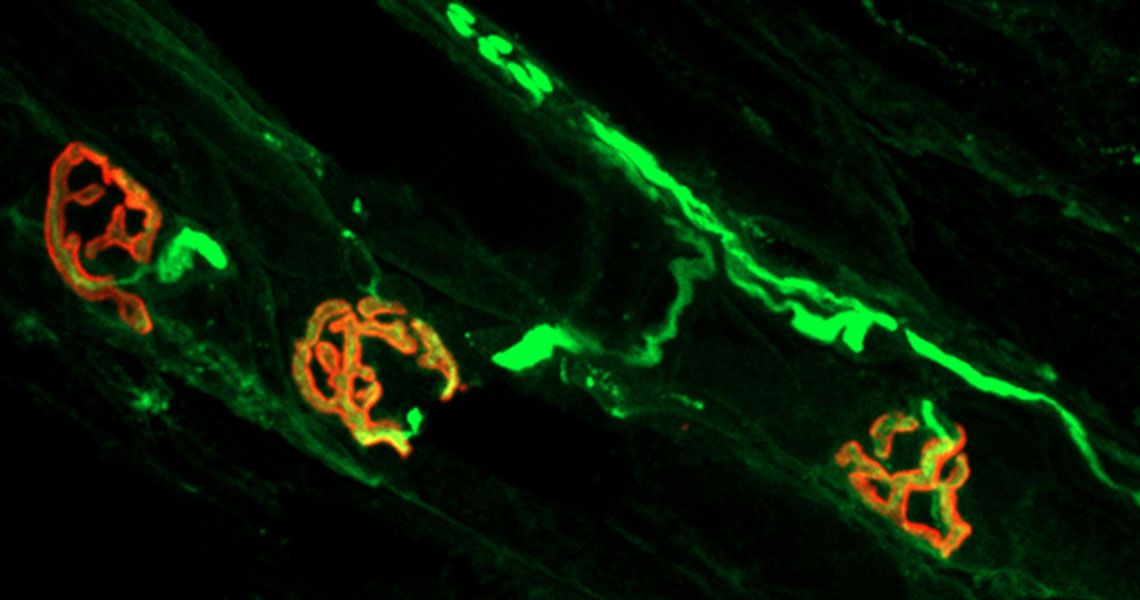WASHINGTON (Oct. 3, 2019) — The National Institutes of Health (NIH) awarded a research team at the George Washington University (GW) $7.8 million to establish a rare disease network for myasthenia gravis. The network, which will be part of 25 established NIH Rare Diseases Clinical Research Networks, will include basic and clinical investigators, patient advocacy groups, and biotechnology and pharmaceutical companies working together to enhance therapeutic development for this rare disease.
Henry Kaminski, MD, chair of the Department of Neurology and Meta Amalia Neumann Professor of Neurology at the GW School of Medicine and Health Sciences (SMHS), is a world-renowned expert in myasthenia gravis and has spent decades studying the disease. He is joined by Linda Kusner, PhD, associate research professor of pharmacology and physiology at GW SMHS, and Alison Hall, PhD, associate dean for research workforce development at GW SMHS, in leading this grant.
“Myasthenia gravis is a chronic autoimmune disease that affects how well the nerves and muscles communicate with each other. Often patients experience extreme weakness, struggle with their vision, and are even hospitalized because of difficulty breathing,” said Kaminski. “This grant will give the researcher community the needed infrastructure to study this rare disease in order to develop new therapies.”
The grant will fund research into the underlying pathophysiology of the disease. There is a lack of understanding of the different subtypes of myasthenia gravis, no known biomarkers, and a scarcity of research labs studying the disease. Upwards of 30% of patients are treatment resistant and all suffer from undesirable to dangerous adverse effects as a result of treatment. To remedy this, the grant will focus on studying the differences between ocular myasthenia and general myasthenia — they produce different antibodies that begin attacking nerve and muscle communication, which often change over time — and individualized medicine approaches for the 10% of myasthenia gravis patients who develop tumors triggered by the disease. The research team will also identify and collect biospecimens for future study and follow myasthenia gravis patients in order to identify biomarkers.
Having defined disease variability and clinical outcome measures will enhance clinical trial readiness. Through the grant, the research team will pilot their own clinical trial to determine whether a current cancer drug that works to eliminate cells producing harmful antibodies might also be effective for myasthenia gravis patients.
In order to increase the number of labs researching myasthenia gravis and aid further discovery in the field, the grant will also support a career enhancement program. This will include new training and educational opportunities for scientists, physicians, and the lay public. These opportunities will not only increase the pool of young investigators focusing their careers on rare diseases, specifically myasthenia gravis, but improve awareness of the unique needs of myasthenia gravis patients.
“The grant is not a just a single project, but the establishment of a resource that will drive research for many years,” said Kaminski. “Other rare disease networks funded in the last 10 years have advanced treatments for these disorders that otherwise would have been impossible.”
The GW research team will be supported by commitments from the Myasthenia Gravis Foundation of America and Conquer Myasthenia Gravis. They will also consider collaborations with the Muscular Dystrophy Association and other organizations.



